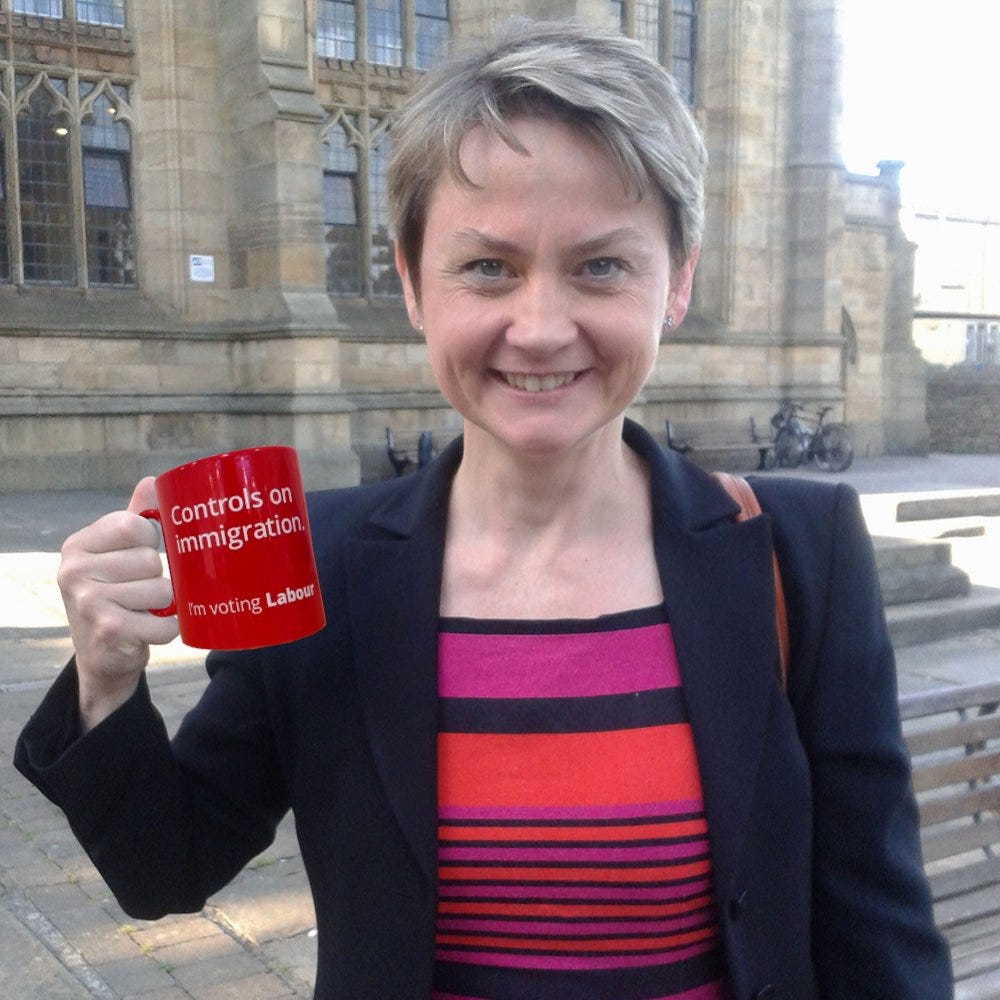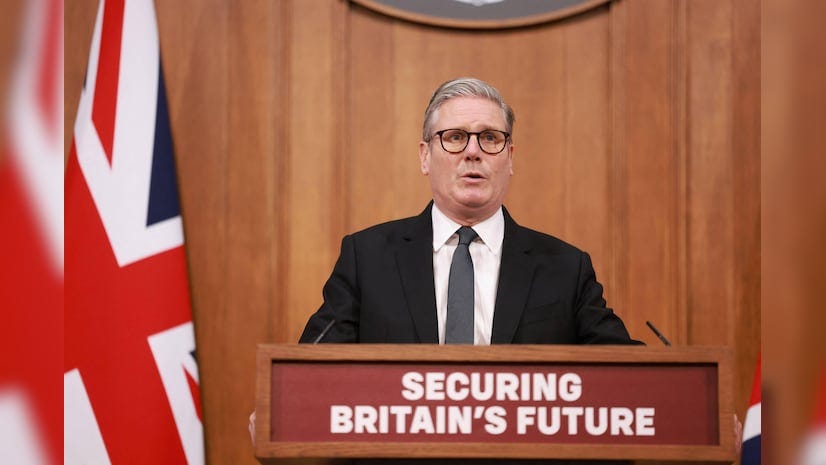“I’m promising that net migration will fall significantly, and I do want to get it down by the end of this parliament, significantly.” Keir Starmer speaking during the government’s Tough on Immigration week
And no one asked him why. The BBC’s political editor Chris Mason took it as read. In a background piece for the Corporation’s news website Mason wrote that:
The current net migration numbers are "beyond unsustainable", one senior government figure told me. Put simply, there is a political imperative to get the numbers down and they hope they have found a way to do it that helps people feel better off, rather than having a negative economic impact.
Did “unsustainable” in the context of the “political imperative” mean that the numbers were politically (as opposed to economically or even socially) unsustainable? And if so, in what way? Presumably Starmer’s objective was not to increase emigration so as to reduce the net number - so the problem had to be too many foreigners coming in. Though he didn’t analyse why precisely this was such an overwhelming worry. Mason confidently told readers:
The aim is that by the time the next general election is close, in 2028 or 2029, the prime minister can point to a trend which bucks what we have seen so far this century. His credibility, and that of the Conservatives, Reform UK and others will be shaped by how successful or otherwise he is.
So far this century? Does anyone ever bother to look at the stats? Net migration more than trebled in the 1990s, from 50,000 in 1990 to 163,000 in 1999. Which of those figures does Mason (or anyone else) think the government is aiming for? And while we’re about it, and whichever figure it is (or isn’t) does Mason really believe that the fate of the government’s credibility rests solely or mainly on this one issue?
We need to think about this. I realise that it is the height of metropolitan bad manners to query the factual claims made by those seeking to restrict migration. I’m told this so often that I sometimes wonder why people make these claims at all given that it is an article of faith that true, authentic Britons simply want – for whatever reason – to cut the numbers of incomers. But…
Some background
But if you’re here reading this the likelihood is that you are of a more sceptical cast of mind. The facts may mean something to you.
In 2010, when the Conservatives came to power in a coalition alongside the Liberal Democrats, with David Cameron committed to reducing net migration to below 100,000 (again, no one asked him why) net inward migration was 252,000, with EU citizens numbering 77,000. However by the time of the Brexit referendum the figures were 336.000 and 207,000. The actual headline figure had shifted by 80,000, but the EU now accounted for far more entrants. Note here, the inclusion of overseas students in these figures hugely affects the numbers. For example in December 2023 379,000 non-EU students arrived and 133,000 left.
Then we left the EU. The very recent steep climb culminating in the record 906,000 figures for the year to June 2023 began in early 2021. This rise coincided with the British National (Overseas) visa scheme under which 150,000 Hong Kong residents came to the UK. Labour strongly supported this. As it did the issuance of visas to nearly 220,000 Ukrainians, following the Russian invasion in February 2022. For some reason this context was entirely missing from the coverage of the government’s “tough on immigration” announcements.
The one-off nature of these commitments and various other minor measures taken before Labour was elected last July have led to projections of a sharp fall from the 728,000 recorded in 2024 to 340k by 2030 (ONS) or between 250,000 and 350,000 (Migration Observatory). So even if it did nothing Labour would - world events permitting - preside over a halving of net migration by the end of its term in 2029. Does that meet the “significant” test?
Clearly not. To “buck what we have seen so far this century” which you will recall is Labour’s “imperative” according to Chris Mason the objective must be to reduce it to around 150,000, which – as I write this – is less than the number of overseas students alone.
Starmer in his speech condemned his Conservative predecessors for conducting an “experiment in open borders”. This was disingenuous. We never have had “open borders” - not even while part of the EU’s free market in labour. There has always been a process, it’s just that the UK government chose policies which allowed a high level of inward migration, and Labour supported most of them.
Reframing the anti-immigration debate
The political exercise here is to put Labour on the “side” of those who – for whatever reason - see largescale immigration as a problem, but to do it in a way that distances the party from any accusation of pandering to xenophobia.
So a determination to reduce net immigration has to be framed as firstly a question of controlling borders and enforcing the law, second as a matter of “fairness” to everyone and thirdly as a way of materially benefiting British citizens (or “workers” as they are to be termed). Not for modern go-ahead inclusive Labour the Faragian “there are too many people on my train not speaking English” or “Britain isn’t British any more” let alone the “migration means Pakistani rape gangs” meme which is how many of the uninhibited on social media seem to interpret Reform’s recent successes. It’s not about prejudice and heaven forfend that anyone should think otherwise.
Yeah, well
The trouble for Keir Starmer is that, for whatever reason, many people’s objection to immigration has little to do with borders (except in the case of the boats), or fairness or even to do with personal economics. It’s about otherness and a sense of loss. Or, to put it more concretely, people speaking foreign languages on the train. With mosques appearing where churches used to be.
Which is why so many of the speeches and interviews given by government figures last week reeked of bad faith. The content largely conformed to the “control, fairness, jobs” theme, but the rhetoric was doing a different job altogether. Take this paragraph in the prime minister’s address:






